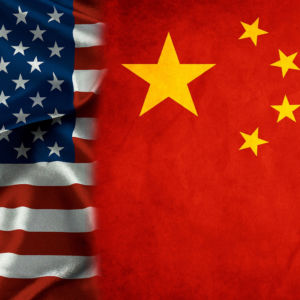Here’s a question to ponder: If the U.S. government believes that Xinjiang, China is undergoing a wave of genocide against ethnic Uyghurs, should American companies do business there? Should they source everything from yarn to Chromebooks from a workforce suffering involuntary labor and human rights abuses? The obvious answer is “no.”
Yet, they are doing just that. Disney infamously filmed scenes from Mulan there, throwing a meaty bone to Beijing engraved with “nothing to see here.” Volkswagen is making cars there. Although thousands of miles from China’s commercial epicenters, this is no Chinese ghost town.
In recent years, China’s Han majority leadership has rounded up hundreds of thousands of Uyghur men. Beijing has cited a homegrown war on Muslim terrorists as the reason. But the actions of the Chinese government in response are extremely troubling, including forced labor, reeducation camps, and women subject to government-mandated birth control.
All of this runs in strong contrast to the policies espoused by the new Biden administration—including frequent calls for “equity,” “inclusion”, and “diversity.”
If these are the values highlighted in Washington now, why are American companies still doing business in Xinjiang?
On January 13, Homeland Security ordered Customs & Border Protection at U.S. ports to withhold any goods sourced from cotton or tomatoes produced in Xinjiang. While that’s a start it actually accomplishes little. Realistically, it makes far more sense to ban any and all products sourced in Xinjiang until the current genocide ends.
Just before leaving the State Department, outgoing Secretary of State Mike Pompeo called out China’s “Marxist-Leninist regime.” He said that China’s gross mistreatment of minorities in Xinjiang is the “stain of the century.” Specifically, Pompeo made clear that Beijing was committing genocide in Xianjing.
During his Senate confirmation hearing, Pompeo’s replacement, Anthony Blinken, said that the diversity-hating, minority-bashing, forced abortion-practicing leadership of the Chinese Communist Party (CCP) in Xinjiang is committing genocide. “That would be my judgment as well,” Blinken told the Senate.
President Biden subsequently made clear that he agrees with Pompeo’s assessment.
Despite the bold talk, some of the world’s largest multinational companies continue to source their wares through labor teams in Xianjing. But with the recent criticism of China, some of them are getting nervous.
For example, H&M, a retail apparel chain, has cut its ties with Xinjiang suppliers of cotton. The U.K. is now going to fine companies that do not rid Xinjiang from their supply chains. How the U.K. will enforce this could be tricky. But such warnings could at least compel companies to start shifting their supply chains.
The Xianjing issue also pervades many of the key tech areas of the 21st Century. The New York Times has reported that some Chinese solar panel makers rely on polysilicon sourced from Xinjiang. Continuing to use those suppliers would pose problems for the nascent “Green New Deal”—particularly when China is by far the world’s leading solar panel manufacturer.
Plenty of other companies are involved, though. In 2019, the Wall Street Journal reported Kraft Heinz, Coca-Cola, and Gap Inc. are “among those at the end of the long, often opaque supply chains that travel through Xinjiang.”
Surely not every business operating in Xinjiang, including those that include Uyghur workers, are using forced labor. But as with much in China, the facts are murky. Supply chains spread across China may not really know how their sub-contractors in Xinjiang are operating.
Since the summer, nearly a dozen companies have been banned from shipping goods to the U.S. due to labor concerns. This should be the start of a much wider crackdown.
Under both the Trump and Biden administrations, the State Department has asked Beijing to “release all arbitrarily detained persons” and abolish its detention camps, forced labor, population control measures, and the removal of children from their families. Yes, China and probably Europe will see this as hypocritical coming from a Washington that has operated a base in Guantanamo and allowed “children in cages” at the border. China’s Global Times Twitter account will have a field day with that comparison.
However, that should not stop Washington from addressing genocide concerns. It’s time for a ban on goods sourced from Xianjing until all humanitarian abuses have been corrected. Once that unacceptable status quo changes, then Disney can go in and make Mulan II.

